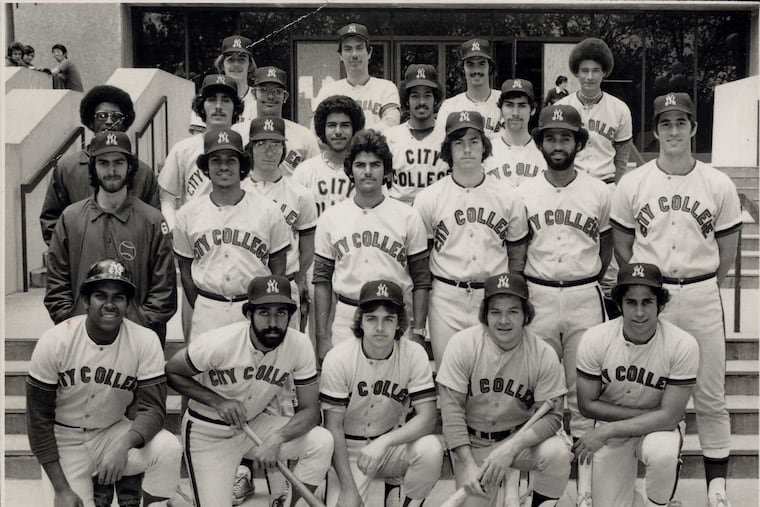Before I became a judge, baseball made me a part of my community after moving from Puerto Rico | Opinion
Judge Juan R. Sanchez: I am reminded of my own childhood experience every time I perform one of my favorite activities as a federal judge: naturalizing new citizens.

I will never forget the first time I played baseball on my neighborhood ball field in the Bronx. I was 12 years old and had just moved to New York from Puerto Rico, where I had lived since birth. Although I was born an American citizen in a U.S. territory, my first language was Spanish. Like many recent immigrants my age, I was looking to fit into a new culture and learn a new language and way of life. Baseball, with its universal language, was familiar: same rules, same scoring, same four bases, and even the same word home run. While the baseball culture in my new city was different, I knew the game and turned out to be a pretty good player. So for me, the baseball field was where I began to feel a part of my new community.
I am reminded of my own childhood experience every time I perform one of my favorite activities as a federal judge: naturalizing new citizens. Like that boy on the Bronx baseball field, at one point, they entered an unfamiliar environment, with its own language, norms, and subculture.
Those experiences will come to mind when I swear in 15 new citizens at the Phillies-Red Sox game on Sunday, just two days before Constitution Day and Citizenship Day on Sept. 17. This low-profile, national anniversary, which many Americans don’t even know of, marks the day in 1787 that our nation’s Founders signed the Constitution right here in our city. The day also celebrates all citizens, whether born in the United States or naturalized.
It is especially appropriate that federal judges will naturalize citizens at a dozen major-league and minor-league games in the weeks leading up to the anniversary of this pivotal moment in our collective history. After all, what could be more American than celebrating the Constitution and new citizens at baseball diamonds across the country? These newest Americans will pledge their loyalty to our Constitution on fields where dreams are born and memories are made.
I will be thinking about everything these persevering immigrants bring with them and all they have left behind as they raise their right hands and take an oath that ushers them through the last door to American citizenship. I will be wondering how we, who are American-born citizens, measure up to the passion, perseverance, and hard-earned civic knowledge of these new citizens.
When we witness new citizens taking the Oath of Allegiance, we can see and feel their excitement about the blessings of liberty and privileges of citizenship many of us take for granted. Naturalization carries with it the privilege of full participation in the civic life of our nation, including the right to speak freely and the right to vote, as well as the responsibility to serve on juries, when summoned.
Jury service is a unique and unsung blessing of liberty that harmonizes the voices of citizens from all backgrounds and makes them the deciders of justice. In the Third Branch of government, jurors aren’t simply advisers or speakers at a town-hall forum.
They are constitutional officers who serve as ultimate decision-makers, applying the law as instructed by the judge to the evidence presented in the case. By enlisting ordinary citizens drawn from a fair cross section of the community to play this vital role in the administration of justice, our jury system serves as an important check on government power. The credibility of our juries’ decisions depends on participation from all of our communities.
In each of these endeavors – taking the field, taking the oath, and taking on the mantle of jurors – there are some truisms. If you want to belong, you have to join. You have to show up, commit yourself, work hard, and do your part to help others succeed with you. Your survival and success depend on building community from diversity in order to face challenges, address problems, and come to a resolution – together.
That is why, as the chief judge of the U.S. District Court for the Eastern District of Pennsylvania, which includes Philadelphia, I have called on community leaders, the bench, the bar, and court staff to spread the word that jury service is an inclusive process for citizens from all walks of life, whether native born or naturalized. For many of us, citizenship begins at birth in America. For others it is born at a naturalization ceremony. On Sept. 15, whether we are taking an Oath of Allegiance or joining new citizens in the Pledge of Allegiance, we should all reflect not just on our rights as Americans, but what we owe our country and our communities.
As a starting point in the stands on Sunday, we can look to center field, where 15 people will raise their right hand and declare their choice to be Americans. And we can ask ourselves: Do we measure up to the standards and commitment shown by these new citizens?
Juan R. Sánchez is chief judge of the U.S. District Court for the Eastern District of Pennsylvania.